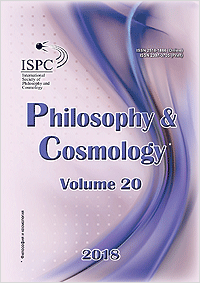Noosphere as Optimal Control. Part 2. Reflective noosphere
Noosphere as Optimal Control. Part 2. Reflective noosphere
Author(s): Boris Balter, Marina FaminskayaSubject(s): Philosophy of Science, Human Ecology
Published by: Международное философско-космологическое общество
Keywords: optimal control; game theory; reflection; noosphere; information cycles; diachronic; paradoxes;
Summary/Abstract: Conceptual system developed in optimal control theory for technical purposes is used as a philosophical instrument applied to cyclic information processes, which are expected to be the basis of noosphere. Noosphere was perceived by the founding fathers of this concept, Vernadsky, Teilhard de Chardin, e.a. as an outgrowth of the evolutionary process, which begins with cosmogenesis and proceeds through geosphere and biosphere. We attempt to apply the optimal control concepts to all three levels – geospheric, biospheric, and noospheric – due to their having a common structure of information processes (or entropic processes considered as proto-information). These processes include homeostasis, accumulation and expenditure of information, formation of hierarchical information structures, evolution involving the breaks of homeostasis etc. In noosphere, controlled system may have the same informational capabilities as controlling system, so that the term “dialog” is more adequate; in this case, we extend optimal control description to game theory. The cyclic, feedback logic of optimal control seems better adapted to noospheric processes than usual causeeffect logic. This second part of the paper proceeds from the geo- and biospheric levels discussed in the first part to the noospheric level. The basic structure at this level is the fusion of natural matter/energy cycles characteristic for geosphere with anthropogenic information cycles, which extend information accumulation and adaptation inherited from biospheric level into reflective realm. The basic type of informational interaction between these structures is construed in perspective of game theory between reflective players.
Journal: Philosophy and Cosmology
- Issue Year: 20/2018
- Issue No: 20
- Page Range: 56-72
- Page Count: 18
- Language: English

